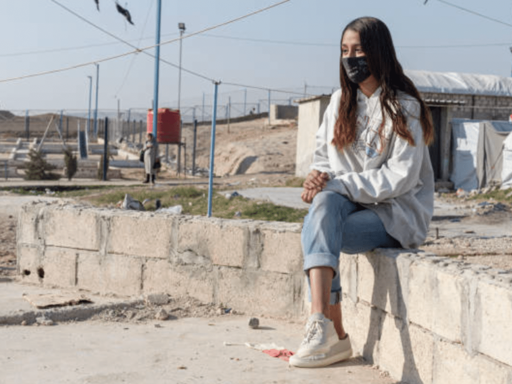Today, 13 November, the UK is hosting a former Al-Nusra commander at an elite London thinktank. Asaad al-Shaibani is now Syria’s foreign minister, having previously led Al-Nusra, a splinter group of Al Qaeda. Co-director of Declassified UK, Mark Curtis, had strong objections:
Speaking today at Chatham House is the former spokesman for al-Qaeda in Syria, al-Nusra, now Syria’s foreign minister, Asaad al-Shaibani.
This is normal. The UK has routinely collaborated with terrorists or former terrorists in its foreign policy.
I wrote a history of it
— Mark Curtis (@markcurtis30) November 13, 2025
And, the fact that al-Shaibani is now able to visit the UK has set a striking precedent over who is considered a terrorist, and who is not. Certainly, for example, when it comes to Shamima Begum – and for that matter, other Brits detained in Syria and not allowed to come home. Otherwise, it’s almost like the whole designation of terrorism is itself a racist and Islamophobic sham that doesn’t stand up to the barest bit of scrutiny.
Shamima Begum
The case for Shamima Begum and others who have been detained is according to a major review of counter-terrorism laws and practices. The Independent Commission on UK Counter-Terrorism Law, Policy and Practice’s new report also warns that the detention camps risk becoming ‘Britain’s Guantanamo’. This is a reference to America’s Cuban gulag for War on Terror ‘detainees’.
Begum, who is from London, was groomed as a child and went to Syria. She was later married off to an ISIS fighter. Begum had and lost several children and was later stripped of citizenship. She lost her final bid to retain it in 2024. In the process, she became a hate figure for the British right and far-right and a political football for politicians.
Now the Commission has urged that she and others be allowed to return. There up to 72 UK-linked individuals are stuck in the detention camps. 30-40 of them are minors.
The report pulled no punches:
The evidence to the Commission demonstrates that the UK’s current policy of strategic distance toward nationals in Syrian detention camps is unsustainable and inconsistent with international human rights obligations.
They said the camp’s conditions were “inhuman and degrading”.
Coercion, trafficking and sexual exploitation
Importantly in light of the current discourse on sex trafficking in the US around figures like Jeffrey Epstein, many of those who’ve been left in Syria experienced exactly that:
The experiences of women and children under ISIS were complex and varied, with many being victims of coercion, trafficking and sexual exploitation, while others may have actively supported the organisation.
Sympathy for these victims is virtually non-existent, directly because they’re brown and/or Muslim. Moreover, the report argues that bringing them back is both possible and just:
International evidence shows that repatriation is practically possible, with largely positive outcomes and manageable security concerns.
Countries implementing systematic repatriation demonstrate that return, prosecution where appropriate, and rehabilitation programs can effectively manage risks while upholding human rights.
They added:
The UK’s reluctance to repatriate has made it an outlier among comparable jurisdictions and may ultimately prove counterproductive to long-term security interests.
British Gitmo?
Unexpectedly, it could be pressure from the US which forces a change. The US is normalising relations with Syria. The Syrian president Ahmed al-Sharaa recently visited the White House. The event caused raised eyebrows given he is a former Al-Qaeda commander.
The report said:
Pressure from the US government, which has called for all states to take back their nationals, the change in the Syrian regime, and as other states repatriate, the prospect of what was referred to as ‘Europe’s Guantanamo’ becoming ‘Britain’s Guantanamo’, may force the government to begin returns.
Certainly, the disparity between treatment of trafficked victims of Epstein and of ISIS is quite remarkable. Opposition to sex trafficking, grooming and coercion and support for victims should be universal principles, universally applied. And that is before considering the expert findings of the report that repatriation is just and achievable.
But here is the core of the question: If the UK and US can ignore the Al-Qaeda backgrounds of individuals who are now senior politicians in Syria, it can certainly repatriate those now languishing in detention camps – many of whom were trafficked, abused and coerced by ISIS, in some cases as children.
Featured image via the Canary
By Joe Glenton
From Canary via this RSS feed



